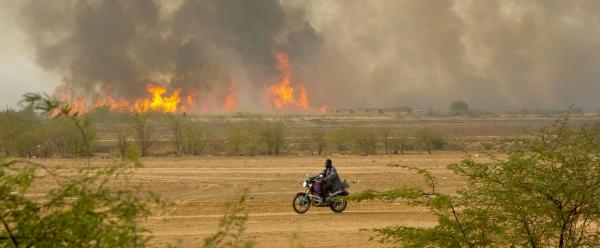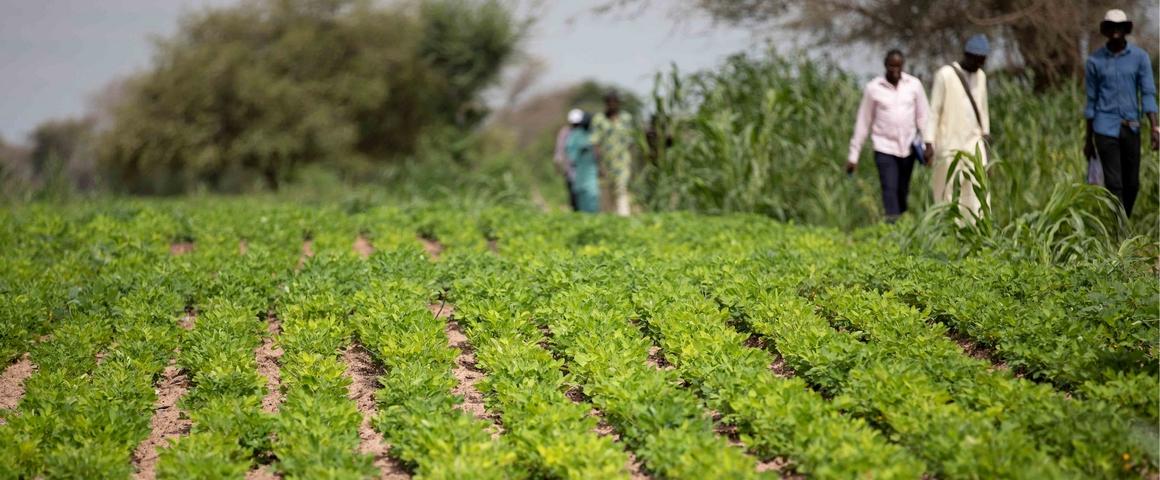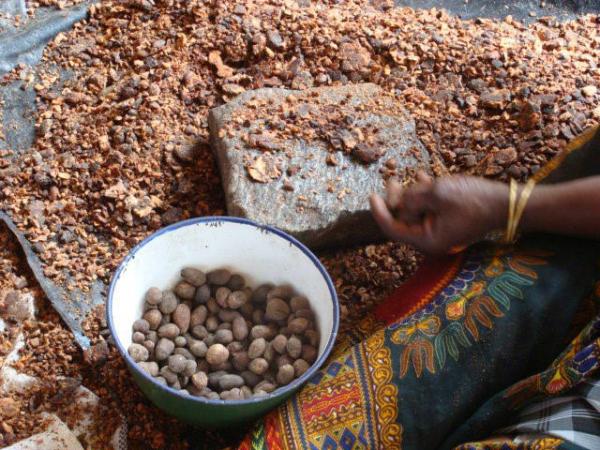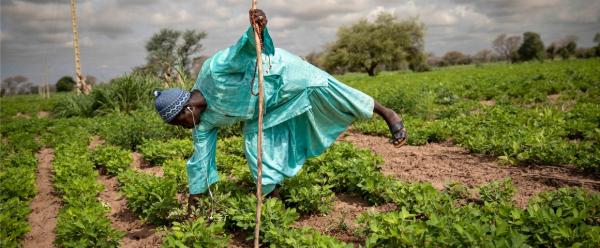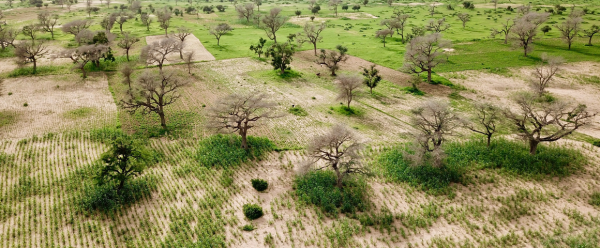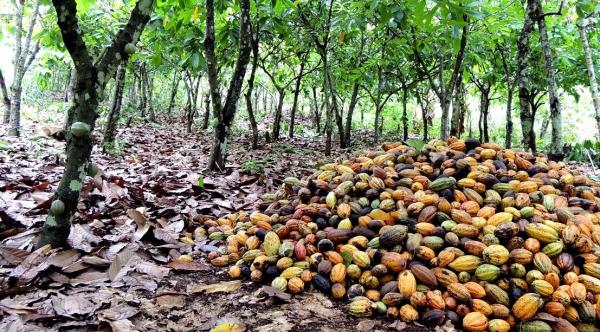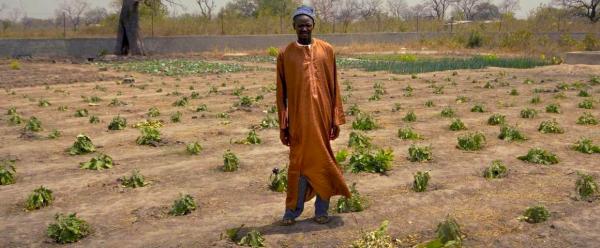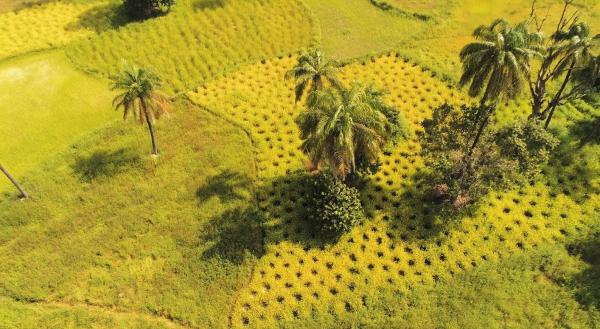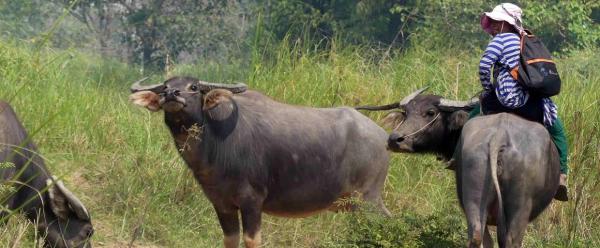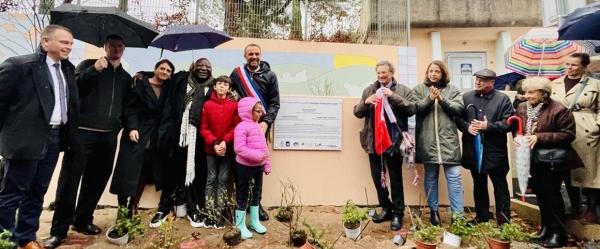The African continent is responsible for 9% of the global carbon footprint, but paradoxically it is also among the most vulnerable to climate change. Sub-Saharan Africa is already experiencing an intensification in drought episodes and, in the near future, the Mediterranean and southern parts of the continent will be the most impacted by the lack of rainfall.
Africa is the continent that emits the least greenhouse gas. However, African countries are amongst the most vulnerable to the effects of climate disruption, particularly since they find it difficult to obtain international funding for adaptation. These specificities prompted a conference on climate change in Africa, organized on 13 June by Agropolis Fondation and CIRAD. Three IPCC authors expressed their views about what they call an environmental injustice. We talked to two of them.
To address this problem, solutions will be shared throughout the week in Nairobi on issues concerning energy and industry, urban and rural areas, food and water, and human development.
CIRAD is present, providing an overview of the traditional or innovative solutions implemented or currently being developed with its African partners.
Converting agrifood industry waste into energy
In rural West Africa, energy supply depends on either autonomous combustion engine-based systems, solar photovoltaic or solar thermal installations, or more rarely a connection to the national power grid. These situations limit the development of agrifood SMEs in rural areas and force them to set up in peri-urban areas. This means that raw materials must be transported from production zones to processing facilities, leading to high transportation costs and considerable post-harvest losses. To address this situation, the Biostar project is working to bring these units closer to the fields and to convert agrifood industry waste into energy (groundnut shells, cocoa pod husks, mango kernels, rice husks, liquid effluents) to enable them to become self-sufficient.
Cashew nut shells, rice husks and mango kernels are waste products generated by agrifood SMEs that are also potential bioenergy sources. This is a sustainable energy solution that CIRAD and nine of its partners aim to develop in West Africa.
Reducing reliance on synthetic fertilisers
The production of synthetic inputs is an energy-consuming and GHG-emitting sector. Consequently, when fertilisers and pesticides are not always accessible in certain parts of Africa, what alternatives are farmers developing to feed their crops or to tackle pests?
Legumes are true green manure for crops, as they are able to fix nitrogen from the air in the soil and thus boost the growth of plants grown alongside them. In Africa, several farming systems use certain legumes in association with cereals: cowpeas, groundnuts, etc. Could legumes partially replace mineral fertilizers? What role could they play in food security on the African continent?
Optimising and developing agroforestry systems
Agroforestry is used in a traditional manner in the Sahel: with researchers, the ecosystem services provided to crops are being optimised by adapting agricultural practices.
Agroforestry parks are emblematic of sub-Saharan Africa, and are an integral part of African agricultural landscapes. The trees provide a range of ecosystem services to the farmers who keep them, and to the crops with which they share agricultural plots. However, those services sometimes enter into competition, with adverse effects on agricultural output. Those effects can be mitigated by adapting farming practices.
In Cote d'Ivoire and Ghana, agroforestry is set to develop, in particular to protect the cocoa industry from climate change, in the context of the Cocoa4Future project.
The project aims to use agroforestry to make cocoa farms in Ivory Coast and Ghana less vulnerable by identifying levers for agricultural and socioeconomic sustainability, while preserving the environment.
Developing more water-efficient varieties and production systems
Species such as millet and sorghum or varieties that are more drought resistant, agroecological production systems: how can people adapt to the lack of water?
Face aux changements climatiques, les paysans sahéliens s'adaptent et innovent, en redécouvrant parfois des techniques ancestrales. Au Burkina Faso ou au Sénégal, plusieurs agriculteurs utilisent la technique séculaire du zaï, qui permet aux cultures de survivre à des temps très secs.
Developing agroecological production systems that are more resilient to climate change is the goal of the FAIR Sahel project. Market gardening in the Niayes region in Senegal, sorghum- and legume-based systems in the central regions of Burkina Faso, and cotton are some of the crop systems being tested as part of this project.
The collective construction of innovative technical systems for agroecological intensification will enable smallholders in three Sahel countries to boost their incomes while making their farms more resilient to climate change and protective of natural resources.
Regional climate weeks : exchanging on climate solutions
The Regional Climate Weeks provide a platform where policy makers, companies and civil society can exchange on climate solutions. Issues concerning energy and industry, urban and rural areas, food and water, and human development are addressed. Four regional weeks are planned for 2023 in four different parts of the world.
